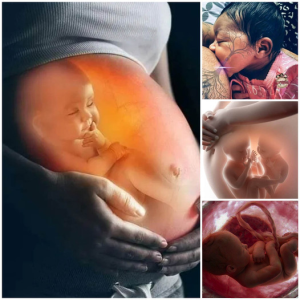Feeling your baby’s first kick is an eagerly awaited and significant milestone for expectant mothers, particularly those experiencing pregnancy for the first time. Sensing that first movement can confirm the presence of a growing life inside the womb, but knowing what to expect can be a source of anxiety and anticipation.

Typically, most women will start feeling their baby move around the 20-week mark of their first pregnancy. However, for some, this sensation may occur earlier or later. Fetal movement is influenced by various factors, including the mother’s sensitivity to the baby’s movements, the position of the placenta, and whether it is a first pregnancy.

Babies in the womb can react to external stimuli. For example, they may kick in response to environmental changes or in reaction to sounds and flavors. Around the 20th week of pregnancy, the fetus begins to hear sounds, which may elicit movements. Similarly, exposure to different flavors through the amniotic fluid can lead to movements that indicate the baby’s preferences.

It’s normal for fetal movements to be irregular in the beginning, and there is no set number of movements that expectant mothers should expect. However, as the third trimester approaches, the baby’s movements tend to become more regular. Monitoring these movements is crucial, and any significant changes should be reported to a healthcare provider.

The feeling of a baby’s first movement can vary among women, with descriptions including sensations of flutters, gas bubbles, tumbling, tickling, or tapping. As the pregnancy progresses, these sensations may develop into more pronounced kicks, punches, and rolls. It is common to start feeling movement on the outside towards the end of the second trimester or the beginning of the third trimester.

In conclusion, feeling a baby’s first kick is a remarkable moment for expectant mothers. The sensations experienced may vary, and it’s important for each mother to pay attention to her baby’s unique movement patterns and seek medical advice if there are concerns about changes in fetal activity.





